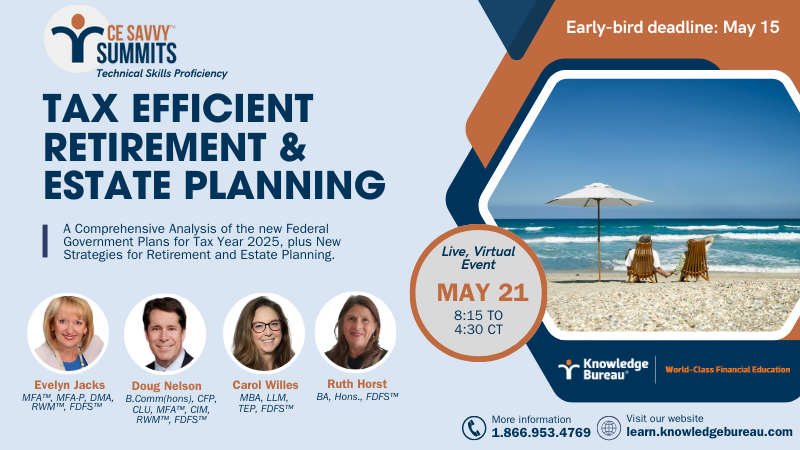
Canada’s New MPs: Salary, Benefits & Accountabilities
Canada has a new government. The 338 new Members of Parliament (MPs) are tasked with taxing and spending Canadians’ money to achieve a myriad of goals, and they are lawmakers. They receive handsome remuneration for doing so. Not dissimilar to the role of professional tax and financial advisors, MPs are advocates for their constituents and stewards of their precious resources, and their roles do intersect, if they are to deliver on Job #1. Filing their tax returns can be a challenge too, given their compensation structure.
The Role. The job of an MP is a tough one, and it requires a two-way street: taxpayers and their advisors need to be able make their views known, in particular, when tax law proposals and their implementation at the CRA (Canada Revenue Agency) requires educated input. In a rapidly evolving digital world, MPs need to be able to advocate for change and implement results, quickly.
Increasingly, MPs are responsible for reliable and timely information about the laws of the land to enable citizens to plan their affairs with certainty in order to make responsible decisions. This requires deep, broad knowledge and a gift for absorbing and interpreting issues within a larger context.
This 2025 tax filing season, for example, has been unprecedented in the inability for CRA to deliver any level of service remotely similar to prior years. Largely this has resulted from the passage of faulty tax law, over a period of several years, and there are numerous examples: the Underused Housing Tax, the Bare Trust Filing rules, and the Capital Gains Inclusion Rate .png) hikes.
hikes.
If the overriding objective is peace of mind in our future, Job #1 is simple: MPs must deliver on citizens’ rights to be well informed and ensure their concerns – or those of their professional financial advisors - are heard in due process.
The Role Description. In the past, an MP’s role was to show up to vote Yay or Nay in the House of Commons while delivering on their specific job description. The following is from the website Open Council on an MP’s duties and responsibilities:
- Represent their riding and their political party
- Participate in Parliamentary debate
- Ask or answer questions during Question Period
- Receive input and respond to the needs of their constituents
- Move motions or table public or private bills to enact, amend or repeal laws and regulations
- Appeal to Ministers on behalf of their constituents
- Attend committee and caucus meetings to participate in developing or amending government policies, programs or procedures
- Influence government policy indirectly through the media – MPs public championing of specific alternative policy options may foster a public mood hostile to proposed or current government legislation
- May serve as minister responsible for a government department or agency and direct senior government managers and officials in the implementation of government policy and the management of that department or agency
More than two thirds of the KPIs – key performance indicators – require direct advocacy for constituents.
The Salary and Benefits. MP’s are well compensated and that compensation package is extensive, with four essential parts to it, according to the House of Commons Procedure and Practice. The most recent Manual to Members Allowances and Services was published April 1, 2025.
First, the base salary or sessional allowance, which is just over $203,000 but house leaders and cabinet members are paid more. It’s paid monthly and it is taxable. It is also inflation adjusted every April 1. Salary is reduced by $120 a day, if it is over 21 days in a session, for reasons other than illness, public or official business, service in the Canadian Armed Forces, pregnancy (up to 4 weeks before the expected date) or up to 12 months of care of a newborn or newly adopted child.
In addition, MPs receive access to a variety of insurance benefits including life insurance, and health and dental care benefits and relocation allowances. They also receive free and voluntary counselling services on topics like personal, family, financial, legal, professional, addiction, lifestyle, nutrition, health and wellness matters, according to the government manual for themselves, their spouses, dependants and employees.
Second there is an “incidental expense allowance” – it’s non-accountable – which means receipts are not required. MPs living in remote communities receive more than those who don’t. For 2019 and later tax years, the full amount of a non-accountable allowance paid to an MP is a taxable benefit.
Since 1990, an accountable allowance (expense receipts required) was introduced as a travel and housing allowance. It covers the cost of meals, incidentals and accommodation expenses incurred while on official business more than 100 kilometres from their principal residence. The accountable expense allowance helps Members to offset some of the costs involved in maintaining two households, one in their constituency and one in Ottawa. Expenses claimed under the travel status expenses provision cannot exceed the amount set by the Board of Internal Economy.
Third is the pension plan and severance payments. To collect a pension, an MP must serve 6 years in Parliament and be over 55. When MPs retire with less than six years of service, they receive a “withdrawal allowance” in a single payment. But there are also severance provisions:
“A former Member who is not entitled to a pension and who was a Member on the day of dissolution, but is not re-elected or did not seek re-election, is entitled to a severance allowance equal to 50% of the total of the basic annual sessional indemnity and any annual salary payable to Members occupying certain offices (such as that of a Minister, House Leader, Whip, or  Parliamentary Secretary).
Parliamentary Secretary).
The severance allowance is also payable to a Member who is not eligible for a pension and who resigned during an election period, following the dissolution of Parliament, or who resigned during a Parliament because of permanent illness or disability which in the opinion of the Speaker prevented the Member from performing his or her duties.” [313)
Fourth are the other “perks” which are designed to assist them in performing their duties: a budget to staff the Parliament Hill and the constituency offices, and goods and services provided for the Members’ use.
There are many reasons minority governments, like like this new one, may wish to hang on longer. One is the desire of opposition MP’s to make certain they get their 6 years in before risking losing their seats in an election and to have continued access to these generous benefits.
How professionals can best work with MPs on behalf of citizens. First, if you are called upon to do a tax return for an MP, be sure you know the rules.
Next, consider the democratic right citizens of Canada have to be well informed. An excellent source for this is Rubén Marciel’s article “On citizens' right to information: Justification and analysis of the democratic right to be well informed”, Department of Philosophy, University of Barcelona, Spain.
He presents, specifically, “a systematic framework for justifying and analyzing this idea by conceptualizing Citizens' Right To Information (CRI) as the moral, democratic, and positive right that citizens have, to be offered the information they need to be well informed, so that they can update their political knowledge and make adequate political choices.
Consider your role in this process. Preparing tax returns and financial plans requires an understanding of tax and economic matters and how to interpret them so that your clients can make informed decisions about their financial future. It is part of your role to manage risk due to uncertainty in the laws MPs are introducing and/or implementing.
In short, if you don’t understand the rules or the process for compliance with tax law, for example, chances are your clients don’t either.
As critical, consider whether your MPs understand what they are passing into law, and speak up to them if you think there is an issue of fairness. Quiz your MP to obtain clarity in your role as educator, advocate and steward of your clients’ financial resources. If that becomes too difficult, because the process is not working – like we have seen at CRA this year – speak up for taxpayer relief.
It’s a tough job. The life of an MP may appear glamorous and lucrative, but it is a difficult job. Much of the year is spent away from home and family and a great deal of time is spent in airports or on planes. The hours are long and some of the work is downright tedious. The frustrations are many, given how difficult it is for an individual MP to accomplish their goals. They must become skilled deal makers if they are to survive in the often incomprehensible world of Ottawa politics.
And, they can use your help in educating and advocating for your clients when it comes to tax and financial matters.
Join the Knowledge Bureau News Network! Tell your friends, too! Stay tuned weekly to Knowledge Bureau Report for continuing coverage of breaking tax and economic news and tune in to a new podcast- Real Tax News You Can Use with Evelyn Jacks: podcast@knowledgebureaureport.com
Discover Canada – The Justice System: “Due process is the principle that the government must respect all of legal rights a person is entitled to under the law.” In Canada, due process is a legal principle enshrined in the Charter of Rights and Freedoms to protect citizens from abuses of power, and guarantees a fair legal process.
